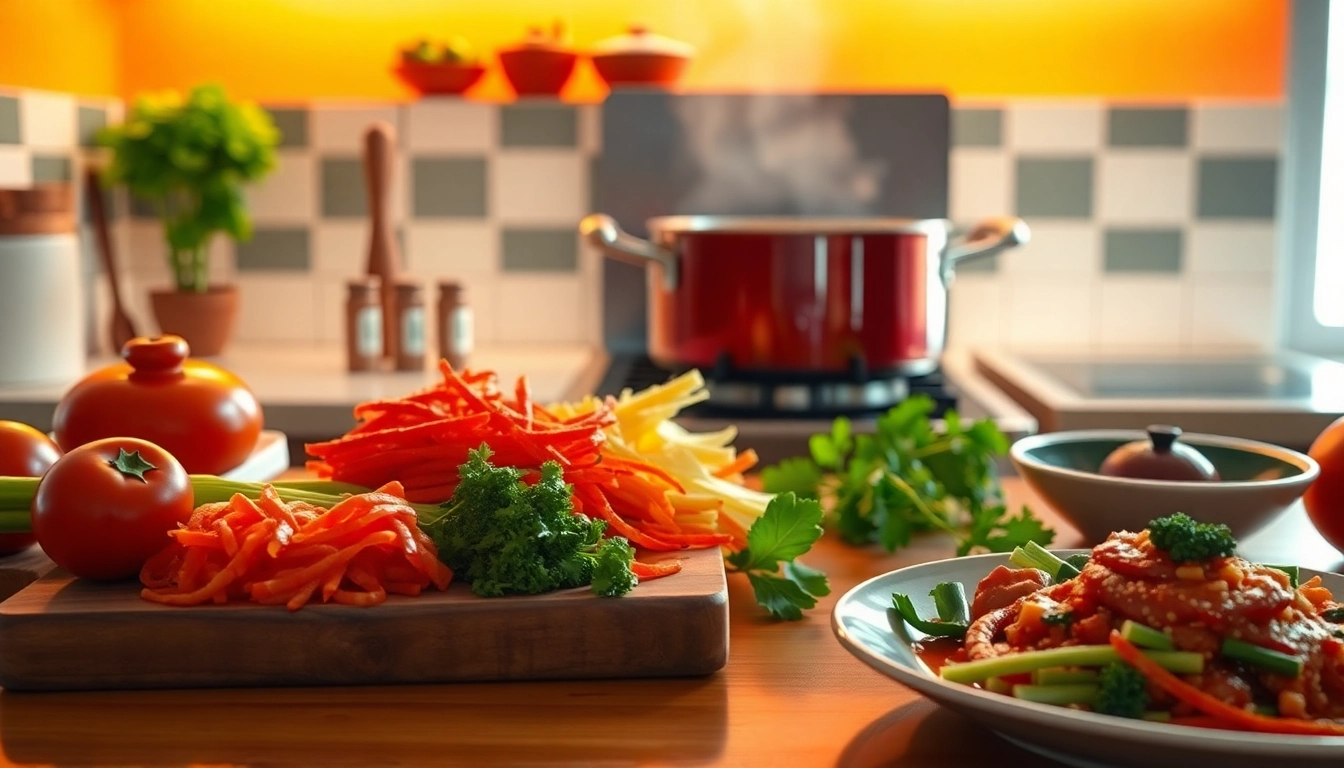Understanding rr88 Cooking: The Essence of Flavors
In the vibrant world of culinary arts, rr88 cooking has emerged as a captivating fusion of traditional recipes and innovative techniques. This gastronomic style is celebrated not just for its flavors but also for its cultural significance, deeply rooted in the traditions and culinary practices of its region. Exploring the essence of rr88 cooking presents a fascinating journey through its origins, key ingredients, and the fundamental cooking techniques that define its character.
The Origins of rr88 Cooking Styles
Tracing the roots of rr88 cooking reveals a rich tapestry of history and cultural exchanges. This culinary approach has evolved over centuries, influenced by various cultures and regional practices. Historical records suggest that rr88 cooking originated from a blending of indigenous recipes with flavors introduced during periods of trade and colonization. The integration of spices and cooking methods from different parts of the world has enriched this cuisine, resulting in unique flavor profiles.
Key Ingredients in Authentic rr88 Recipes
Authenticity in rr88 cooking hinges on the use of fresh, high-quality ingredients. Staples often include local spices, herbs, and vegetables that reflect the area’s agricultural diversity. Common ingredients might encompass:
- Rice: A central component in many dishes, rice serves as a base for curries and stir-fries.
- Herbs: Fresh herbs such as cilantro, mint, and basil contribute vibrant flavors and aromas.
- Spices: Cumin, coriander, turmeric, and chili play crucial roles in developing depth in both taste and color.
- Proteins: A variety of meats, seafood, and plant-based proteins are used, emphasizing regional availability.
Common Cooking Techniques for Beginners
For those venturing into rr88 cooking, mastering a few fundamental techniques is essential. Common methods include:
- Stir-Frying: A quick-cooking method that retains flavor and texture, perfect for fresh vegetables and prepped proteins.
- Steam-Cooking: Preserves nutrients and enhances natural flavors, particularly effective for vegetables and dumplings.
- Simmering: Ideal for creating rich sauces and deeply flavored broths, allowing spices to meld beautifully over time.
Top 5 Must-Try rr88 Dishes
To truly understand rr88 cooking, one must explore its signature dishes that encapsulate its essence. Each dish tells a story of culture and culinary tradition.
Signature Dish 1: Uncovering Its History
The first must-try dish is representative of the traditional elements found within rr88 cooking. Its history reveals the socio-economic influences on agriculture and trade that contributed to its development. This dish often reflects an era of geographical abundance, showcasing local ingredients that have stood the test of time.
Signature Dish 2: Ingredients and Preparation
Ingredients for this dish might include a combination of staple foods alongside exquisite herbs and spices. The preparation process generally involves methods such as marinating proteins, preparing aromatic bases with onions and garlic, and carefully balancing flavors through taste-testing. Each step matters in achieving authenticity.
Signature Dish 3: Presentation Tips
When serving rr88 dishes, presentation plays an important role. Utilizing vibrant colors from fresh herbs, drizzling sauces artfully, and serving alongside colorful garnishes are essential for enhancing visual appeal. Plating has the power to transform a simple meal into an inviting experience.
Cooking Techniques to Master for rr88 Recipes
Essential Cooking Methods Explained
In addition to the basic techniques already discussed, it’s vital to delve deeper into essential methods specific to rr88 cooking. Techniques such as fermentation, grilling, and creating emulsions for sauces are critical for achieving varied textures and flavors.
How to Perfect Stir-Frying
Stir-frying stands out as a quintessential technique in rr88 cooking. To master this, one must learn how to control heat effectively, prioritize prep work to ensure all ingredients are ready, and know the right timing for adding each ingredient to maintain their integrity and flavor.
Using Spices to Enhance Flavors
Understanding spice usage in rr88 cooking can elevate dishes significantly. Toasting spices before use can unlock additional flavors, while knowing how to layer them throughout the cooking process will develop complexity in sauces and marinades.
Challenges in rr88 Cooking and How to Overcome Them
Common Mistakes Beginners Make
Even aspiring chefs may encounter challenges when first experimenting with rr88 recipes. Common pitfalls include under-seasoning meals, neglecting ingredient preparation, or not balancing flavors. To avoid these, beginner cooks should invest time in understanding ingredients and techniques.
Ingredient Substitutions for Accessibility
Substituting hard-to-find ingredients can help maintain continuity in cooking. For example, if fresh herbs are unavailable, dried versions can suffice; however, one must adjust amounts since dried herbs are more concentrated. Additionally, utilizing local alternatives encourages creativity.
Tips for Maintaining Authenticity
To maintain authenticity while exploring rr88 cooking, one should incorporate traditional flavors wherever possible. Engaging with local culinary communities or utilizing online platforms can provide insights into authentic practices and adjustments needed for personal preferences.
Measuring Your Success: Performance Metrics
Evaluating Flavor Combinations
Success in rr88 cooking can be gauged through flavor evaluations. Tasting, balancing, and adjusting flavors often result in the desired outcome. Keeping a journal to document these adjustments can aid in future cooking endeavors.
Gathering Feedback from Others
Serving dishes to family and friends can offer invaluable feedback. Engaging in constructive conversations about flavors and textures can highlight areas for improvement and validate successful outcomes.
Adjusting Recipes for Personal Taste
Ultimately, personalizing recipes to meet one’s taste preferences is a sign of a confident cook. Adjustments can range from seasoning to cooking methods, aiding in the development of a personal culinary style within the framework of rr88 cooking.
